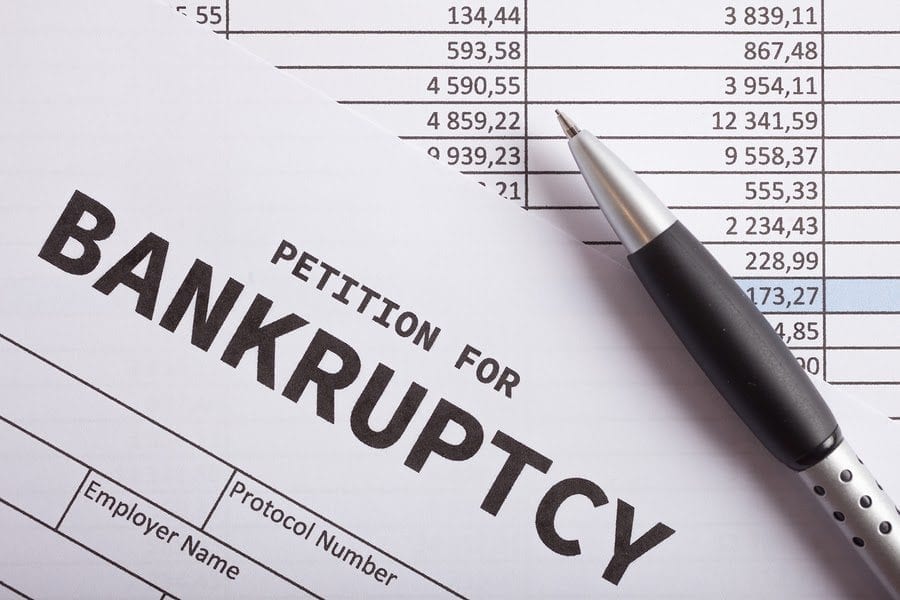According to statistics supplied by the U.S. Bankruptcy Court for the Eastern District of Pennsylvania, which has jurisdiction over Philadelphia and the surrounding counties, most Pennsylvanians who declare bankruptcy do so using Chapter 7 or Chapter 13, with well over 4,000 cases of each filed during the 2016 fiscal year. The main feature that distinguishes Chapter 13 from Chapter 7 is its reorganization plan, a three- to five-year plan during which the debtor makes monthly payments toward secured debts (such as car loans), priority debts (such as alimony), and unsecured debts (such as personal loans), in that order. When the debtor successfully completes the plan, the case is discharged, and the debtor is no longer liable for remaining dischargeable debts. But how are the reorganization plan payments determined in the first place? Keep reading to see how our Philadelphia bankruptcy attorneys answer that very important question.

How Are Chapter 13 Payments Calculated in PA?
Chapter 13 reorganization plans are so finely tuned to each debtor’s unique financial circumstances that, unfortunately, it is impossible to create a generic calculator that can reliably produce an accurate estimate of what each debtor’s monthly payments will be. One filer may have considerably higher payments for a shorter period of time, while the other might make lower payments that are spread out over a much longer period of time.
Due to the great variability of Chapter 13 plans, it is wise to take the results you get from any internet Chapter 13 calculator with a grain of salt. Until you speak with a Philadelphia Chapter 13 attorney about your existing financial circumstances, the assets you possess, and the specific goals you are trying to achieve – for example, are you trying to prevent your car from being repossessed, or are you willing to surrender the vehicle? – you are unlikely to find a reliable personalized assessment. However, Sadek Bankruptcy Law Offices provides confidential and cost-free initial consultations, so there is absolutely no charge for discussing your potential bankruptcy options as a Pennsylvania resident.
While it is difficult to accurately estimate the precise provisions of a given reorganization plan, it is possible to explain the general process by which such a plan is created. Assuming the debtor has already undergone means testing – a bankruptcy requirement, initiated in 2005, which is designed to determine who should file under which chapter – the next step is to prepare and submit the necessary bankruptcy forms, notably the bankruptcy petition itself, but also supplementary documents such as lists of properties, creditors, income, and expenses.
If the debtor is filing Chapter 13, he or she will also be required to propose a reorganization plan at this early stage, or shortly afterward. Under Rule 3015(b) of the Federal Rules of Bankruptcy Procedure, which apply not only in Pennsylvania but nationwide, “The debtor may file a [C]hapter 13 plan with the petition [for bankruptcy]. If a plan is not filed with the petition, it shall be filed within 14 days thereafter.” Crucially, the rule goes on to note that the 14-day deadline is generally ineligible for extension, so timeliness is of the utmost importance.
Though no law requires debtors to have legal representation, it is in your best interests to craft and propose this plan – which must gain the bankruptcy court’s approval before your case may proceed – with assistance from a knowledgeable Chapter 13 attorney in Bucks County. The bankruptcy lawyers of Sadek Bankruptcy Law Offices have handled numerous Chapter 13 cases in Philadelphia, Bucks, Delaware, and Montgomery Counties, and possess a nuanced understanding of how repayment plans should be crafted to the benefit of the debtor.
One of the first factors you and your attorney should discuss when putting together a plan is your income, particularly your average income during the six months leading up to the bankruptcy. Whether this amount is higher or lower than Pennsylvania’s median income – $55,702 as of 2015 – will influence the length of your plan. If your income was lower than the Pennsylvania median, your plan may be anywhere from three to five years. If your income was higher than the Pennsylvania median, it is likely but not guaranteed that you will be required to commit to a five-year plan.
The longer your plan is, the lower your monthly payments can be, because they will be spread out over a longer span of time. Whether you would rather make aggressive payments and finish the bankruptcy as soon as possible, or prefer to make smaller payments for a longer period of time, your attorney will analyze your debts, assets, and disposable income – all of which must go into the plan – to help you create and propose a plan of a practical length.
It is also vital to keep your debts in mind: not only the dollar values themselves, but the nature of each debt. Priority debts like alimony and child support need to be paid in full, as do secured debts (such as mortgages and auto loans) if you wish to keep the property in question. Chapter 13 can save property when debtors stick to their plans, but conversely, the failure to pay off secured debts may result in repossession or foreclosure.
Other factors that can impact the duration and scope of your repayment plan include:
- Administrative expenses
- Changes in employment status
- Overtime pay
- Retirement loans
- The “best interests of creditors” test, which requires Chapter 13 plans to provide unsecured creditors with, at bare minimum, the amount they would have received if the debtor filed under Chapter 7
- Whether any of your creditors object to the plan
When the plan has been settled, it will be formally confirmed using Form 2300B, which succinctly summarizes the plan’s most important terms (e.g. payment amounts and due dates).

Philadelphia Bankruptcy Attorneys Handling Chapter 13 Cases
If you’re considering filing for bankruptcy in Pennsylvania, make sure you get the clear and honest assessment you deserve before making such an important decision. To discuss your bankruptcy options in a free legal consultation with an experienced Montgomery County Chapter 13 lawyer or Delaware County Chapter 13 lawyer, contact Sadek Bankruptcy Law Offices at (215)-545-0008 today.





